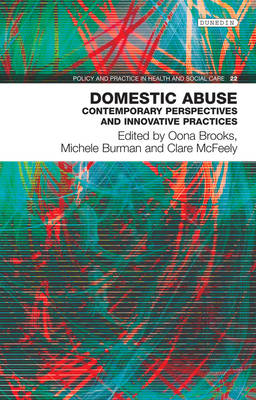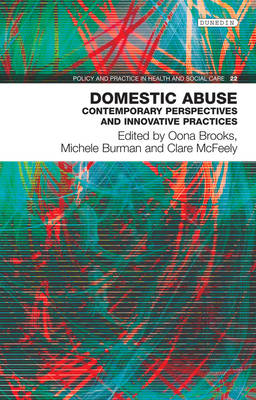
- Retrait gratuit dans votre magasin Club
- 7.000.000 titres dans notre catalogue
- Payer en toute sécurité
- Toujours un magasin près de chez vous
- Retrait gratuit dans votre magasin Club
- 7.000.0000 titres dans notre catalogue
- Payer en toute sécurité
- Toujours un magasin près de chez vous
Description
Domestic abuse is a persistent global health and social problem with far reaching consequences at both an individual and a societal level. Internationally, significant progress has been made in addressing domestic abuse and responses to the problem have evolved rapidly in recent years. However, considerable challenges still exist across a range of jurisdictions in terms of how to define, conceptualise, prevent and respond to domestic abuse.The Scottish Parliament has developed a distinctive approach to defining and addressing domestic abuse, informed by a history of feminist activism, and has adopted a gendered definition of domestic abuse not shared in other parts of the UK. This approach explicitly positions domestic abuse as both a cause and consequence of gender inequality. In Scotland, domestic abuse is therefore addressed within an equalities framework. Whilst this approach is underpinned by international treaties shared by other countries, Scotland's approach is considered to be particularly progressive.By illustrating contemporary research and practice in Scotland, and situating this evidence within an international context, this volume provides a valuable source of national and international knowledge for those working and studying across a broad range of sectors, including health, education, housing, social work, criminal justice, law and politics. A feminist theoretical perspective, which recognises domestic abuse as a function of gendered inequalities, is adopted as a framework for understanding the research evidence and practices discussed throughout the book.
Spécifications
Parties prenantes
- Auteur(s) :
- Editeur:
Contenu
- Nombre de pages :
- 132
- Langue:
- Anglais
- Collection :
- Tome:
- n° 22
Caractéristiques
- EAN:
- 9781780460598
- Date de parution :
- 24-05-18
- Format:
- Livre broché
- Format numérique:
- Trade paperback (VS)
- Dimensions :
- 137 mm x 216 mm
- Poids :
- 181 g

Les avis
Nous publions uniquement les avis qui respectent les conditions requises. Consultez nos conditions pour les avis.






